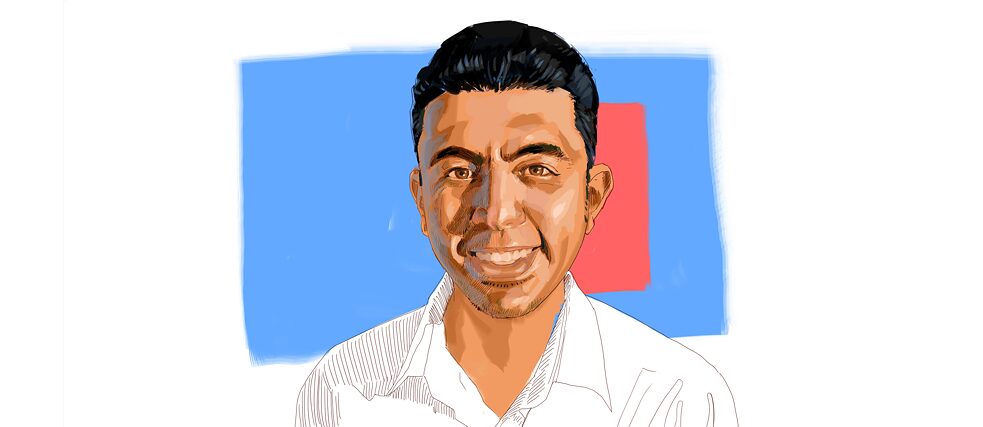by Anwar Jabbar Mowat from Baghdad
Philosophical Poems

Anwar Mowat was born in Baghdad in 1990. He completed his education in Baghdad and graduated from the College of Medicine in 2014, with a degree in Medicine and Surgery. Anwar now works in one of Baghdad’s psychiatric hospitals as a psychiatrist. For Anwar, psychiatry is the only discipline in medicine that is rooted in philosophy; it is for this reason that he chose it.
Inspired by his father, who was an avid reader, Anwar was interested in poetry and philosophy from an early age. His childhood home was full of books. Anwar witnessed both Gulf Wars and lived through the sanctions, which all had their impact on him. He grew up in the impoverished Al-Thawra neighbourhood, now called Sadr City. At the time, food and medicine were scarce, and poverty was widespread. Anwar says that Saddam’s regime brought much suffering upon people, which impacted his perspective on life and made him melancholic like everyone else.
He began writing poetry in 2014 and wrote his first poem when he was 24 years old. Since then, he has spent much time developing his poetry and working on it in tandem with ins inquiries into philosophy. This year, he published the philosophical book The Dialogue, which contains two philosophical dialogues, inspired by Plato.
The project
The project is a collection of more than 190 prose poems, published in 2018 by Gilgamesh publishers in Baghdad. Prose poetry is a modern style of poetry in which the writer writes from his/her own feelings and experiences/perception. It is philosophical because it raises questions about being and human existence. Anwar highlights the problems writers face in Iraq in terms of publishing and distribution. He says that the writer doesn’t enjoy his product because the publisher doesn’t take any responsibility to advertise the book or launch events to promote it, instead placing the burden of distribution and advertisement on the writer.With the assistance of his father, Anwar took his books to the famous Mutannabi Street in Baghdad, where intellectuals and book lovers gather, and introduced and signed them.
Anwar believes that poetry is the basis for every sort of writing. Even academic writing should be inspired by the imagination. If the writer has no ability to imagine and create metaphors and incorporate philosophy into his writing, then it becomes stale.
Every writer should have a sense of poetry and mix objective reality with it. Anwar would like to leave his mark on Arabic poetry by incorporating philosophy into it. He would also like to make philosophy–the study of which, he feels, is being neglected–a core subject for all economic, social and political analysis. It is only through philosophy that people can become visionaries, and its absence in the various realms of daily life–in health, education, economic and political projects–has resulted in chaos.
Comments
Comment